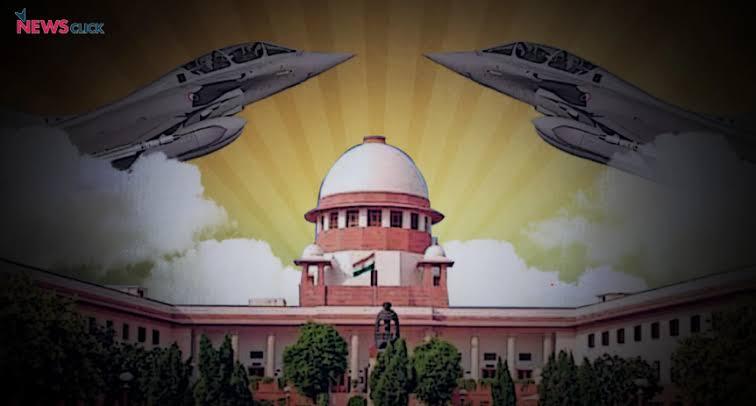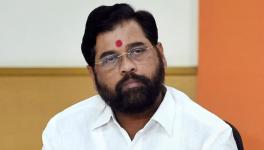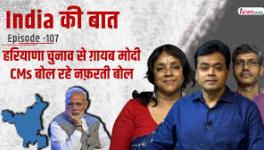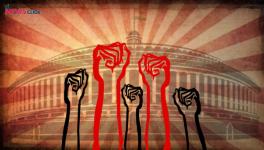Rafale 2.0: No Investigation Means No Justice

On November 14, 2019, a Supreme Court bench comprising Chief Justice of India, Ranjan Gogoi, and Justices SK Kaul and KM Joseph, dismissed petitions seeking to review its December 14, 2018 verdict, in which it had rejected a court-monitored investigation into the vexed Rafale deal.
Naturally, the verdict has been construed as a “major relief” for Prime Minister Narendra Modi’s government and the ruling Bharatiya Janata Party (BJP). While the BJP is rejoicing, it is also ridiculing the Opposition and the lawyers who had sought the review.
This is a political setback for the Opposition in general and Congress party leader, Rahul Gandhi, in particular. The question can be raised whether the Congress committed a political blunder in coining the slogan ‘chowkidar chor hai’ (the protector is the plunderer) for now it can be said that they put the cart before the horse.
But even more questions remain with regard to the controversies connected to the Rafale deal and the government’s refusal to bring it to complete rest via a thorough investigation. Until that happens, there is every possibility that this issue will haunt the government.
Door Still Open for Investigation
First, it is important to note that while Justices Gogoi and Kaul have decried any need to doubt the pricing process and denounced the ‘fishing expedition’, Justice Joseph, who has ruled separately, has agreed with the Chief Justice and Justice Kaul but said, “The petitioners can approach the CBI [Central Bureau of Investigation] for registering an FIR [First Information Report], provided the CBI gets nod from the government as per the Prevention of Corruption law.”
This keeps the door open for CBI investigation, even more surely by a Joint Parliamentary Committee or JPC, which is the normal process followed in such cases, as we saw in the Bofors and 2G scam cases during the Congress rule.
Second, though the court summarily dismissed petitions for review, it has not answered several issues raised by the petitioners. The court’s earlier verdict in December 2018 was based on a sealed envelope given to it by the government. The petitioners never got access to it, and had raised objection to this.
The government then noted that a report of the Comptroller and Auditor General (CAG) was put before the court that claimed that the Rafale deal was 2.86% cheaper, as finalised by the BJP-led National Democratic Alliancc government than by the Congress-led United Progressive Alliance government.
But the CAG report was never put before the Public Accounts Committee, headed by the leader of Opposition, Congress leader Mallikarjun Kharge. Hours after CAG’s Rafale report was tabled in Parliament, Gandhi and the petitioners had noted that it had failed to mention the dissenting note by negotiators. This note, they said, had “demolished” the government’s claims on price and delivery schedule. This dissenting note was published in The Hindu.
The Opposition also mentioned in 2018 that the current CAG is Rajiv Mehrishi, who was finance secretary, government of India, and had signed off on the Rafale deal himself. This, they had said, was a conflict of interest which ought to prevent him from auditing the deal.
Doubtful Secrecy and Parallel Negotiations
Third, the government has always maintained that there was a non-disclosure agreement between India and France on the details of the Rafale deal and the price of the deal. This was negated by the French President later. Clauses 5 and 6 of the inter-government agreement say that the government will make efforts to bring the Opposition on the same page over this issue, a common procedure in Western democracies including France. That the leader of Opposition in Parliament cannot be given the details of the pricing of a deal India is spending Rs 59,000 crore on, is suspicious.
Fourth, the Supreme Court’s remarks on the pricing of the Rafale aircraft are important: “...the Court satisfied itself with the material made available. It is not the function of this Court to determine the prices nor for that matter can such aspects be dealt with on mere suspicion... The internal mechanism of such pricing would take care of the situation.”
In October 2018, the government told the Supreme Court only about the Deputy Chief of Air Staff leading the seven-member Ministry of Defence (MoD) team in the negotiations. And the court did not take into account revelations in The Hindu of a parallel negotiation by the Indian Prime Minister’s Office with French and Dassault officials, other than the official military-MoD negotiations. This is contrary to norms and standard operating procedures.
Altering Numbers of Jets and Pricing
Fifth, the 2012 negotiations by the UPA were to buy 126 Rafale jets, 18 of them in fly-away condition, the remaining built in India along with the public sector unit, Hindustan Aeronautics Limited (HAL). Their average cost was to be Rs 526 crore per jet.
Four years later, after year-long negotiations, the NDA government led by Narendra Modi brought the number of jets down to just 36; with a 300% escalation in cost. Now the jets would cost Rs 1,690 crore per jet, and their total cost would be Rs 59,000 crore, for fly-away condition jets. There would be a 50% offset of the cost in India with the major partner being the Anil Ambani-led Reliance Defence (and not HAL).
In the new deal, Dassault has chosen Reliance Defence as offset partner for 36 jets, and the French company would make compensatory investments in India worth 50% of the total deal value. Despite the additional feature, the question is whether a massive 300% cost escalation was acceptable—and how it came to be—in just three years, other than the choice of an inexperienced offset partner.
Besides, several companies owned by Anil Ambani’s Reliance Group were going bankrupt, which made the decision to deprive a PSU of business and experience in aircraft production all the more controversial.
Further, denying any investigation on the basis of such questions amounts to a denial of justice.
Sixth, though Rafale was a government-to-government deal, it was being executed by a private firm Dassault. Surprisingly, there is no bank guarantee, no sovereign guarantee and no Escrow account in this deal, when even a small loan of Rs 5 crore requires a collateral guarantee and this is a humongous Rs 59,000 crore.
Seventh, the Supreme Court has said India needs fighter aircraft. It talks about the Indian Air Force requirement of 4th- and 5th-generation aircraft, such as Rafale. The military establishment, the political parties and public opinion in general supports this position. Then why were 126 jets reduced to 36? Is there no prima facie suspicion in this? Is it not natural justice to allow a thorough investigation to settle such suspicions?
The law says that since citizens do not have the wherewithal to investigate such specialised deals, the institutional investigation mechanisms should step in on their behalf.
Crony Capitalism
Former French president Francois Hollande, who signed the inter-governmental agreement on Rafale in September 2016, told the news agency AFP (published by Le Monde) that the Indian government gave it no choice but to partner with Reliance Defence; a statement he partially retracted very soon after.
Ninth, Anil Ambani’s Reliance Group incorporated a defence company only a few months before Modi announced the new Rafale deal, and this has raised eyebrows. Ambani also accompanied Modi to France on the visit that led to the announcement of the deal. Later, media investigations showed that Anil Ambani had visited the advisers of the French defence minister days before he had gone with Modi to Paris. Thus, crony capitalism is a natural criticism here.
Tenth, Bofors and the 2G scams were never proven in courts and a JPC examining the Bofors deals absolved the then prime minister, Rajiv Gandhi and his government. But Congress governments lost in the subsequent elections held after both these scams came to light and under scrutiny.
Now the Supreme Court has rejected a court-monitored probe, but the doors to a JPC or other probes are not closed. The nation must know the truth, which only a thorough and impartial investigation can reveal.
The writer is Pro Vice Chancellor of Kolkata-based Adamas University, and a regular commentator.
Get the latest reports & analysis with people's perspective on Protests, movements & deep analytical videos, discussions of the current affairs in your Telegram app. Subscribe to NewsClick's Telegram channel & get Real-Time updates on stories, as they get published on our website.
























